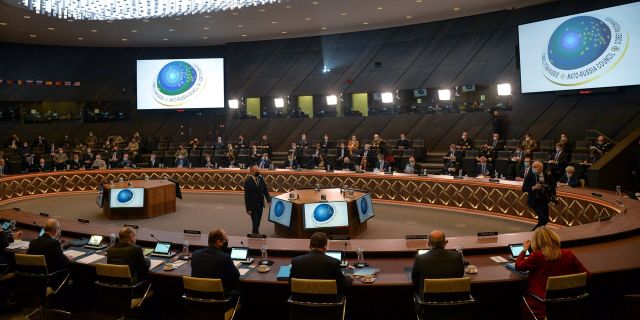The emasculation of NATO
Sweden and Finland have declared their desire to join NATO. The author of the article calls it an emotional reaction to the Ukrainian conflict. The next expansion of the alliance will not bring any real benefit.
It is assumed that the emotional reaction that arose in the West during the Ukrainian military conflict will strengthen unity and solidarity in NATO. On the agenda are possible applications from Sweden and Finland for membership in the alliance. For NATO, this means another expansion. Some are triumphant and consider it an indicator of unity and unity. Some even say that the alliance is getting stronger.
However, the waves of expansion after the Cold War have yielded almost nothing to either NATO or the allies. On the contrary, they turned into new costs and unnecessarily expanded NATO's defense responsibility. And this time it will be the same.
Liberal aggression after the Cold War turned it into an instrument of ideological peace. Such a military alliance as NATO was used to spread democratization, free market, globalization. The countries of Eastern Europe have not made any contribution to the security of NATO. On the contrary, they have imposed new responsibilities on the alliance.
It is argued that Sweden and Finland, unlike Eastern European countries, will make a more significant economic, military and geopolitical contribution to it. However, none of these claims is supported by sufficient evidence. The military and economic contribution of these countries is just a drop in the bucket. Their geopolitical contribution on the northern flank is also not so valuable that it cannot be provided by the Baltic States or Norway. In fact, the expansion of NATO is again becoming an effect of emotional reactions.
"So what?" – you ask. NATO is not an organization of ideological cooperation. She's not even a defensive alliance. NATO is primarily a deterrence alliance. If you destroy NATO's deterrence, then there will be nothing left of it. The way to maintain deterrence is through simplicity and trust. Any chaos and insecurity blurs the borders of NATO. Expansion does not entail deepening. On the contrary, each expansion makes NATO smaller and smaller in terms of deterrence.
In fact, if the strategy of "expanded deterrence" were really applied, then the accession of new members could be understood. However, as long as the United States does not play a leading role in this, the debate about deterring NATO will never stop. The absence of the United States cannot be filled with the participation of new countries. And when there is no deterrence, your allies turn around for you at the cost of being drawn into a military conflict.
But all this is too cold an analysis for the Western world at the moment. They were so emotional when a military conflict broke out near their borders that it is very difficult to keep them from such ideological steps. However, at least Turkey can voice such concerns to NATO.

